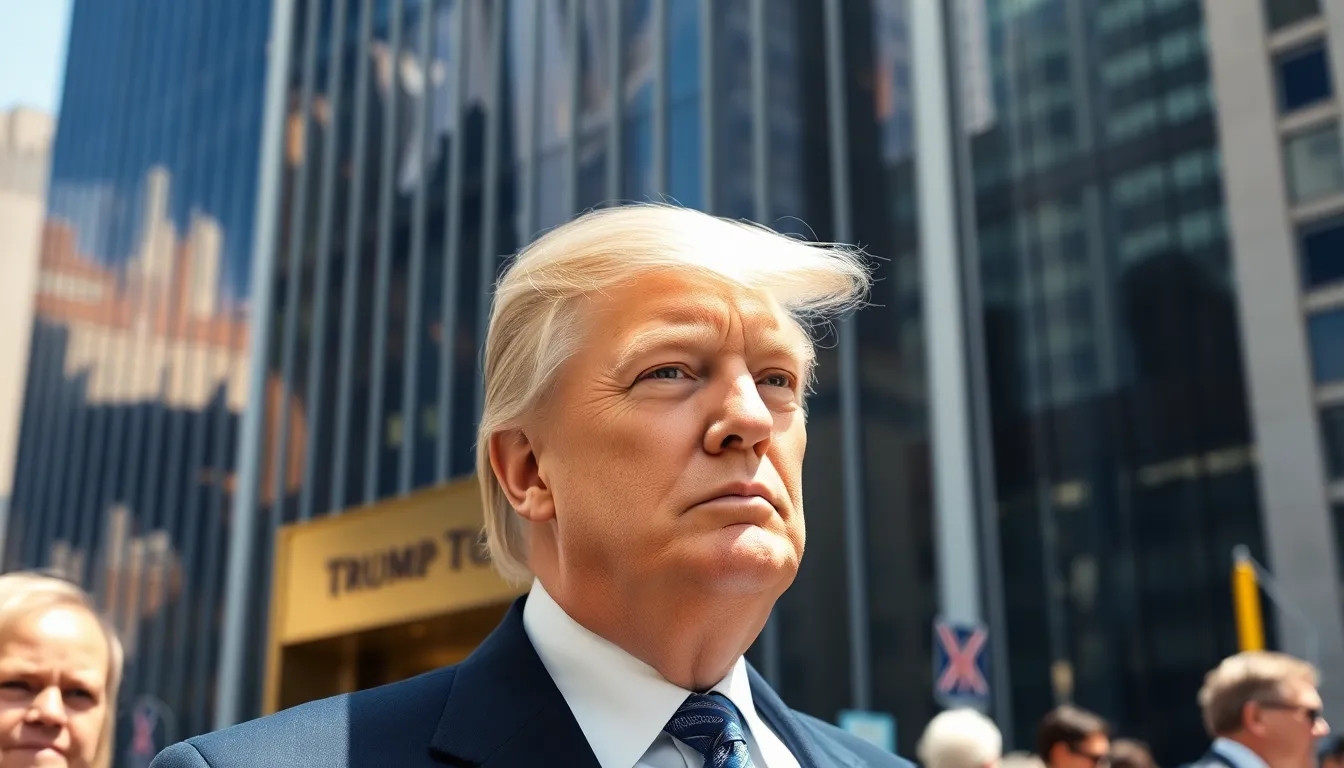Table of Contents
ToggleWhen it comes to wealth, Donald Trump is a name that sparks curiosity and debate. Before he took the Oval Office, he was a real estate mogul, a reality TV star, and a self-proclaimed billionaire. But how did his financial fortunes shift during and after his presidency? Spoiler alert: it’s not just about the gold-plated toilets.
In this article, we’ll dive into the fascinating world of Trump’s net worth, comparing the glitzy figures from his pre-presidential days to the numbers that followed his time in power. Buckle up as we explore the ups, downs, and unexpected twists of a man whose financial journey is as colorful as his Twitter feed. Get ready to uncover the truth behind the dollar signs and discover whether the Trump brand emerged stronger or took a hit in the political spotlight.
Overview of Trump’s Financial Journey
Donald Trump began his financial career as a real estate developer in the 1970s. During this period, he gained significant wealth through various ventures, including commercial properties and licensing deals. By 2016, estimates suggested his net worth reached approximately $3 billion, largely attributed to investments in real estate and branding.
His presidency, which lasted from January 2017 to January 2021, presented unique opportunities and challenges. Supporters argue that his political brand expanded his influence, while critics claim his wealth declined due to boycotts and controversy surrounding his name. In 2021, financial assessments revealed Trump’s net worth dropped to around $2.4 billion, reflecting decreased revenue from his businesses and real estate holdings.
Post-presidency, Trump’s financial standing continues to be scrutinized. Reports indicate a gradual rebound in certain sectors, particularly in golf course profits and merchandising. Many speculate that his future ventures, including potential media projects, could enhance his brand.
Challenging market conditions and evolving public perception remain pivotal factors in his financial landscape. Various business entities associated with him have faced legal and economic hurdles. Nevertheless, his ability to leverage media attention keeps his brand relevant.
Ongoing assessments demonstrate that Trump’s financial journey encompasses wide-ranging variables. Changes in his net worth reveal insights into his business strategies and political impact. Overall, the complex interplay between his presidency and financial status paints a vivid picture of a notable figure navigating a turbulent financial landscape.
Trump’s Net Worth Before Presidency

Trump’s financial landscape before his presidency featured notable assets and ventures.
Key Assets and Ventures
Prominent real estate holdings included Trump Towers in New York City, luxurious hotels, and golf courses in various states. Licensing agreements diversified his portfolio, with properties bearing his name contributing significantly to his income. Trump’s stakes in reality television, particularly “The Apprentice,” raised his profile and income while establishing a powerful brand. Additionally, investments in commercial properties enhanced his wealth, reflecting his strong footing in the real estate market.
Estimated Net Worth Figures
By 2016, estimates placed Trump’s net worth at approximately $3 billion, with various sources corroborating this figure. Assets like high-end properties and income-generating ventures supported this valuation. Forbes consistently ranked him among the wealthiest individuals in America, acknowledging the success of his brand. Financial assessments indicated fluctuations over the years but demonstrated a generally upward trend leading to his presidential run.
Impact of Presidency on Trump’s Finances
Donald Trump’s presidency marked a significant transition in his financial landscape. Various factors, including business revenue changes and legal challenges, contributed to fluctuations in his net worth.
Changes in Business Revenues
Business revenues experienced notable shifts during Trump’s presidency. His properties, particularly hotels and golf courses, saw mixed performances due to heightened scrutiny and polarization. Revenue streams from the Trump International Hotel in Washington, D.C., came under pressure as patronage declined among political opponents. Golf course profits, however, began rebounding post-presidency, with increased interest in golf amid the pandemic. Overall, assessment reports indicated a decrease in his total business revenue, shifting his financial focus toward stabilizing existing brands and exploring new opportunities in media and merchandising.
Legal Challenges and Financial Implications
Legal challenges created significant financial implications for Trump’s businesses. Investigations into various dealings, including tax matters and business practices, generated ongoing expenses, straining his financial resources. Legal fees accumulated rapidly, impacting cash flow and diverting attention from business growth. The economic environment also evolved, with shifting public sentiment affecting his brands’ reputations. Various legal proceedings continued to burden his ventures with uncertainty, heightening risks associated with future investments. Continued scrutiny complicates Trump’s financial recovery while also shaping his business strategies moving forward.
Trump’s Net Worth After Presidency
Trump’s financial status post-presidency reflects a complex landscape shaped by several factors. Public interest in his properties, especially golf courses, seems to have increased since he left office.
Current Valuation of Assets
Estimates place Trump’s net worth at approximately $2.5 billion as of 2023, showing a slight recovery from the downturn seen in 2021. Real estate holdings, including marquee properties like Trump Tower and multiple golf courses, contribute significantly to his wealth. Golf course revenues are reportedly on the rise, attributed to surging interest in the sport during the pandemic. Licensing agreements and brand collaborations continue to generate income, maintaining relevance in the market. While his businesses face challenges, some sectors have shown resilience, allowing for a mild uptick in overall valuation.
Future Financial Outlook
Market analysts express mixed views on Trump’s financial future, pointing to both opportunities and constraints. The possibility of new media ventures could create significant revenue streams. Legal challenges, including ongoing investigations, threaten cash flow and necessitate resource allocation for legal fees. Changes in public perception may also affect brand profitability. Political activities, such as potential candidacy for future office, might influence his financial strategy and engagement with supporters. Multi-faceted dynamics will shape his financial trajectory, warranting close observation as circumstances evolve.
Donald Trump’s financial trajectory illustrates the intricate dynamics between business and politics. While his net worth saw a decline during his presidency, recent estimates suggest a modest recovery. Factors such as increased interest in his properties and ongoing licensing deals have contributed to this rebound.
However, the shadow of legal challenges looms large over his financial future. The interplay of public perception and political aspirations will likely shape his wealth in the coming years. As Trump continues to navigate these complexities, his financial journey remains a compelling case study in the intersection of celebrity, business, and governance.




